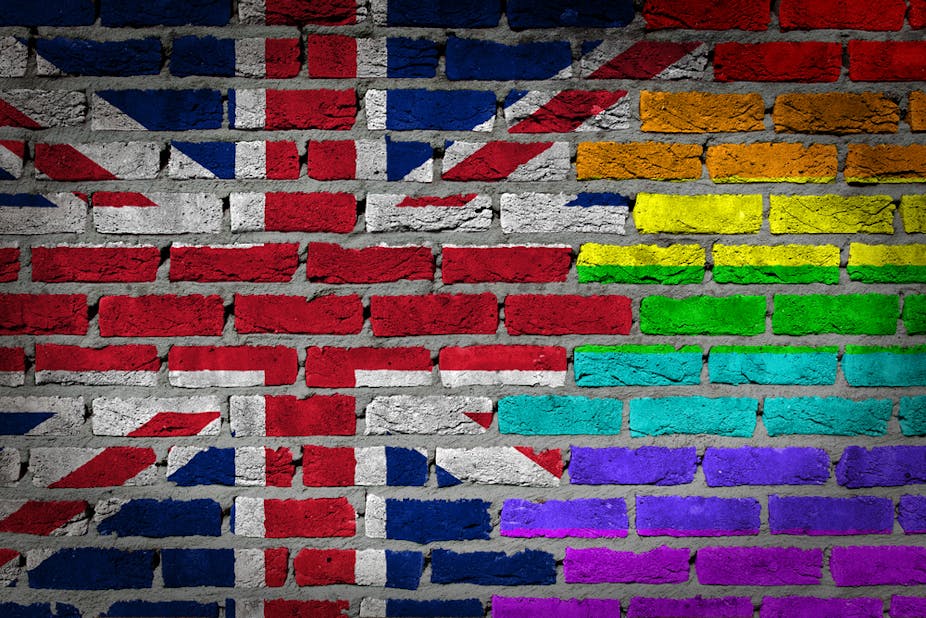After years of trying to improve its approach to lesbian, gay and bisexual asylum seekers, the Home Office has once again gotten it very wrong.
Aderonke Apata, a high profile LGBT rights campaigner from Nigeria, has applied for asylum in the UK, which she was refused. She could face the death penalty if she is deported.
As part of her evidence she submitted a petition containing nearly 30,000 signatures from members of the British public in support of her claim. Explicit video footage and photographs of her with her girlfriend were also submitted.
Barrister Andrew Bird, representing the home secretary Theresa May, dismissed this evidence, asserting that as she had previously had a heterosexual relationship and had children, she could not be a lesbian. He put it this way at the court hearing:
You can’t be heterosexual one day and a lesbian the next day, just as you can’t change your race.
Of course, this thinking does not any longer represent the mainstream view of sexuality; the idea that “homosexual” and “heterosexual” are definitive, mutually exclusive categories has been somewhat superseded by more nuanced views that recognise sexuality as complex and fluid.
But Apata’s case hasn’t just revealed a barrister’s poor understanding of how sexuality works – it has shone an unedifying light on a system that still can’t figure out how to handle gay, lesbian and bisexual asylum seekers.
Jumping through hoops
It’s not as though the UK has failed to stand up for gay rights abroad. Same-sex sexual relationships are illegal in 76 countries, but much of the rest of the world is finally taking a stand against such laws, and the UK has been an enthusiastic participant. Among other things, David Cameron has called for aid to some countries (Uganda, for instance) to be withheld because of their treatment of LGBT people.
But for all that it has become something of a leader in LGBT rights on the world stage, the UK has long performed disappointingly when it comes to actually helping LGBT people who are persecuted elsewhere and seek international protection.
In the UK, seeking asylum on the basis of your sexuality is a complex legal process. Because sexuality is not explicitly recognised within the 1951 Refugee Convention (under article 1a) as part of the definition of a refugee, many cases come down to complex and lengthy legal battles like Apata’s case, which has taken ten years.
It increasingly falls to individuals to prove their sexuality and convince the Home Office and Immigration Judges that they are indeed gay, and the hoops they often jump through are often humiliating and bizarre.
Within the asylum process, sexuality is still largely defined by a conformity to stereotypes and expectations about what gay sex involves. In my research with lesbian asylum seekers, women who had sought asylum told me about being asked not just whether they had read Oscar Wilde and what TV shows they liked, but whether they used sex toys and “how they had sex”.
In 2014, a document was leaked to the press which outlined a series of questions asked by the Home Office to a bisexual asylum seeker in a detention centre. These included “what is it that attracts you to a man’s backside?”, “what is it about the way men walk that turns you on?” and “do you put your penis into [your boyfriend’s] backside?”
Worse still, the system’s increasing focus on proof of homosexual activity has seen growing numbers of LGBT asylum seekers submitting recordings of themselves having sex for legal scrutiny to try and validate their claims, as Apata did.
Excruciating
After loud criticism of these inappropriate standards of proof, in 2014 Theresa May commissioned the Chief Inspectorate of Immigration and Borders to investigate how sexuality asylum cases are being handled.
The review concluded that while progress had been made, the Home Office’s guidance was still being implemented inconsistently, and that Home Office employees needed further training on how to asses sexuality claims fairly and sensitively.
That there have been sincere promises to improve the situation make it all the more shocking that the Home Office continued to dismiss Apata’s claim on the basis that its staff simply do not believe she is a lesbian, despite the explicit materials she submitted as evidence. This raises the question, what do you need to do in order for the Home Office to believe that you are lesbian, gay or bisexual?
Apata’s case is an ugly reminder that the UK’s asylum process has never caught up with the way sexuality is now understood here. Until it does, people in desperate situations will continue to be treated appallingly.

